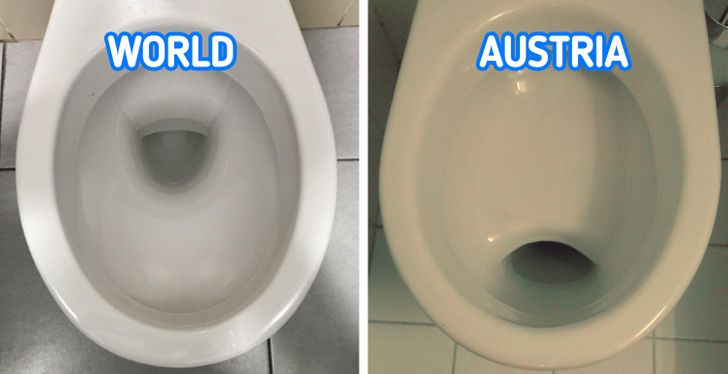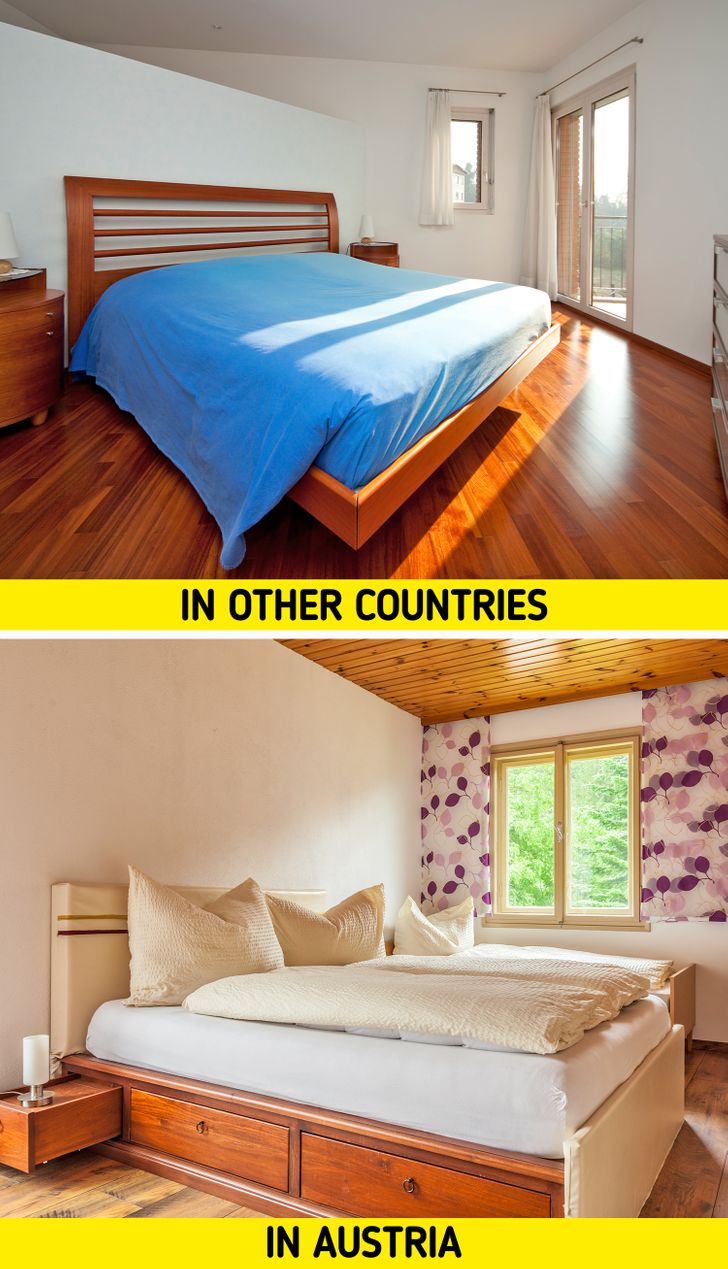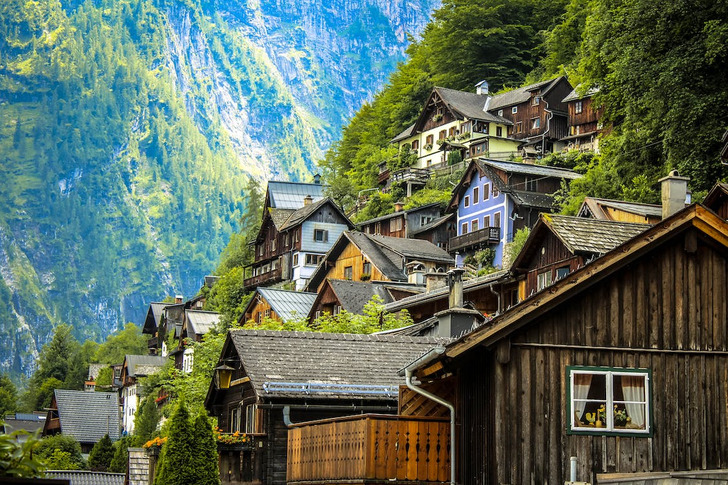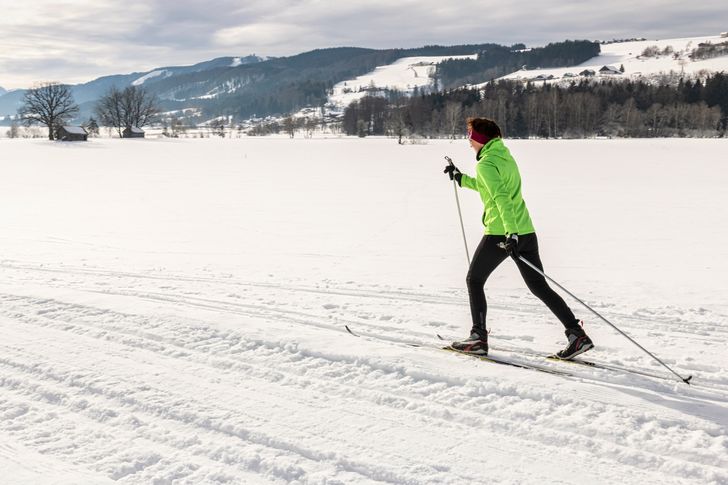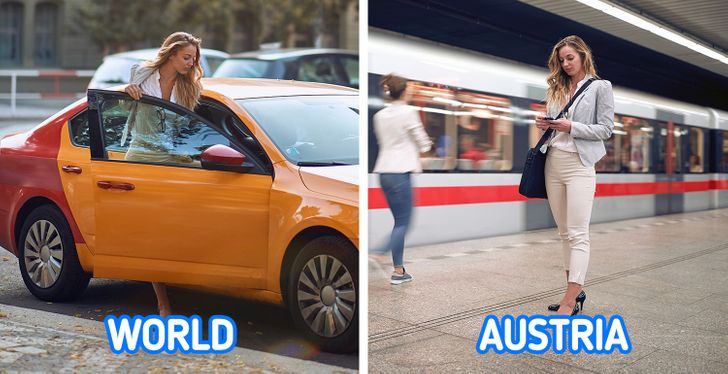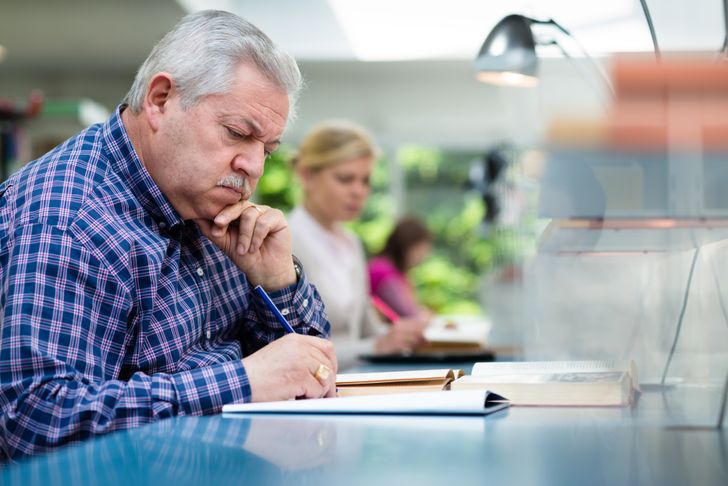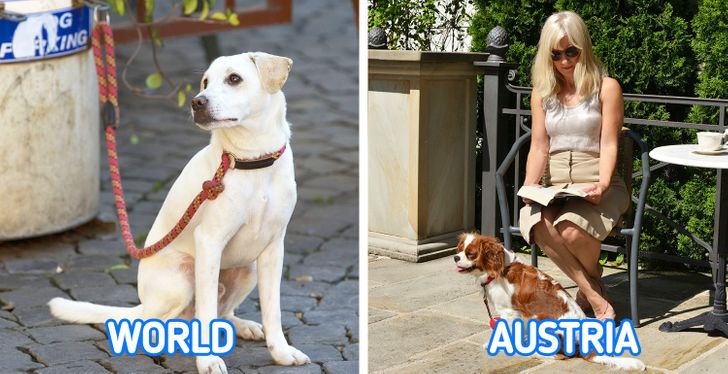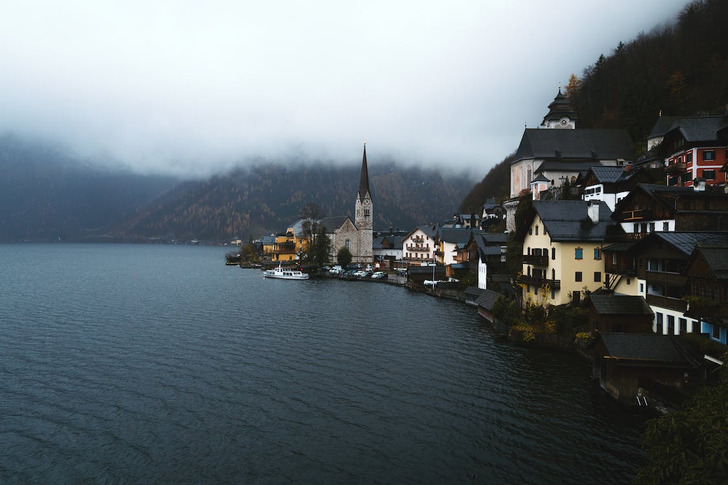is that tax for dog owners only? how about another pets?
15+ Realities of Life in Austria That Can Puzzle Newcomers
Austria, located in the heart of Europe, remains a perennial favorite among tourists. Its magnetic allure attracts visitors from far and wide, seeking to explore renowned ski resorts and immerse themselves in its abundant historical and cultural treasures. The captivating landscapes of Austria never fail to inspire, leaving an indelible mark on those fortunate enough to experience them. Once enchanted by its beauty, it is no wonder that visitors yearn to return to Austria time and time again, drawn by its irresistible charm.
Austrian toilet bowls feature a unique design element: a shelf. Unlike conventional toilets, the waste remains on the surface of this internal shelf before being flushed away, allowing individuals to conduct self-checks of their health or collect stool samples for later testing. This innovative feature offers users a practical way to monitor their well-being and take proactive measures for their healthcare needs.
- Austrian don’t use bedspreads. When checking into a hotel, you will typically find a neatly folded blanket placed on the bed in your room without any additional coverings. This trend also extends to Austrian households, where bedspreads are seldom seen. However, visitors or immigrants from other countries often incorporate bedspreads into their interior decor, highlighting the cultural variations in bedding preferences.
- Austrians are straightforward. They prefer direct communication without beating around the bush. When interacting with locals, it is not uncommon to receive candid feedback or “rude” comments about your behavior or appearance. This emphasis on honesty, sometimes mistaken for rudeness, showcases the Austrian commitment to open and frank expressions of their thoughts and opinions.
- “If you ask, ’Does this dress make me look fat?’ you will actually get a ‘Yes,’ if it does!’ Austrians come across as super harsh to many other cultures, but if what they are saying is true, then they are not being harsh (in their opinion). They are just telling it like it is.” © Mariana Bernasconi / Quora
- It’s inappropriate to look aside during toasts. When Austrians raise their glasses, they maintain deep eye contact with the individuals they are toasting with. This custom is rooted in the belief that deviating from this practice may bring bad luck. Furthermore, any deviation from this tradition is often interpreted as a sign of disrespect by the locals.
In German, Austria is not referred to as “Austria” but rather as “Österreich.” This distinction stems from the historical origins of the country’s name. The term “Österreich” is derived from the Old High German word “Ostarrîchi,” meaning “Eastern Realm,” which reflects Austria’s position in relation to other regions during the Middle Ages.
- The Spittelau waste incineration plant stands out as a unique landmark in the capital city. Visitors are often taken aback by its striking appearance, adorned with vibrant mosaics and glistening golden accents that catch the sunlight. Renowned Austrian artist Friedensreich Hundertwasser was the creative mind behind this design. Known for his commitment to environmental protection, Hundertwasser embarked on the project only after receiving assurance that the new plant in Vienna’s heart would not harm the environment.
- Understanding Austrians can be a challenge even if you’re familiar with German. For instance, if you ask for a “tüte” (the German word for “bag”) at the checkout, you might receive a perplexed look. Instead, it would be more appropriate to use the term “sackerl.” Despite Austrian children learning German literature in schools, the country is characterized by a diverse range of dialects. These dialects allow locals to discern the city or even district from which the person they’re speaking to originates.
- It’s rare to come across an Austrian who doesn’t know how to ski. Skiing is ingrained in their culture, with children often accompanying their parents to ski resorts from an early age. Additionally, ski lessons are compulsory during their school years. Unsurprisingly, Austrian skiers consistently excel in competitions, often securing the highest number of medals at both the World and European Championships. "Skiing is quite expensive, so many only do it once or twice a year. Still, we watch the Alpine Ski World Cup together, and it’s just as important as soccer, maybe even more so, because we’re good at it. © Jakob-Manuel Krobath / Quora
- Austrians habitually provide separate blankets to each person sharing a bed. This ensures that everyone has their personal space and warmth during the night.
Taxis are not commonly used in Austria as walking for 10 or 15 minutes is pretty normal instead of calling a cab or an Uber. In Austria, taking a taxi is typically associated with being elderly and unable to walk long distances or being wealthy and not wanting to bother with walking. © Jakob-Manuel Krobath / Quora
- Austrians have the opportunity to pursue lifelong learning at universities. With the benefit of free education, individuals of all ages can enroll and continue their studies. It is not uncommon to have a classmate who is a grandparent seeking to expand their knowledge or embark on a new educational journey.
- In some countries, staring at strangers may be considered impolite, but it’s a different story in Austria. Austrians often look at strangers on public transport or in the streets with genuine interest, which is actually a way of showing approval. It’s not meant to suggest that the person being looked at is strange or unusual, but rather a reflection of Austrian culture. “You haven’t really lived in Vienna long enough if you don’t just stare at people on the subway without feeling any guilt about it.” © toffmon / Reddit
Austria is a dog-friendly country where our four-legged friends are welcome almost everywhere. They can accompany their owners to cafes, restaurants, subways, and many other public places and modes of transportation. If any establishments do not allow dogs, they usually display a clear sign indicating the restriction.
- In Austria, people have a unique way of greeting each other that differs from what we may be accustomed to. While many of us are used to hugging as a greeting, Austrians have a more open approach: they greet each other by exchanging kisses on both cheeks. The level of familiarity or closeness between individuals doesn’t impact this custom, as both close friends and new acquaintances engage in this friendly gesture.
- Tickets to the renowned Vienna Opera House may not be within everyone’s budget, but there is a workaround to experience its grandeur. A few hours before a performance begins, individuals can purchase standing-room tickets, priced at a nominal cost, akin to a cup of coffee. In addition to enjoying the concert, visitors can enhance their experience with a complimentary tour of the theater, adding to the overall value of their visit. “There was a huge queue for the standing-room tickets, as expected. But we were lucky because the counter closed after getting our tickets. We were awe-struck as soon as we entered the State Opera House. It was beautiful. I mean, really beautiful.” © Rohan Jain / Quora
Hydropower is significant in Austria’s energy mix, contributing to almost half of the country’s electricity generation. The abundance of rivers and mountainous terrain provides ample opportunities for hydropower plants to harness the power of flowing water. This renewable energy source offers numerous benefits, including sustainability and low greenhouse gas emissions. The reliance on hydropower in Austria showcases the country’s commitment to clean and renewable energy production.
- The residents exhibit a swift and efficient approach when it comes to checking out at supermarkets. They prioritize promptly bagging their purchased items, ensuring a seamless process. This unspoken understanding aids in expediting service and respects the time of those waiting in line.
- In Austria, a dog tax applies to all dog owners regardless of the breed. Each city determines the tax rate, but on average, owners pay around €72 per year for the first dog and €105 for each additional one. Failure to comply with this requirement can result in significant fines.
- Vienna has a vibrant community garden culture, with wooden tubs filled with soil dotting the streets. These gardens serve as personal spaces for residents to grow their own flowers, vegetables, and greenery. The communal nature of these gardens fosters a sense of shared responsibility, with gardeners organizing regular meetings to discuss cleanliness, plan future gatherings, and determine which plants to cultivate. It’s a collaborative effort that brings the community together in nurturing these green spaces.
Every country has its own distinct and fascinating features that make it unique. South Korea offers a rich blend of modern technology, vibrant pop culture, and delicious cuisine, while Japan showcases its rich history, breathtaking landscapes, and deep-rooted traditions.
Comments
It looks like a gorgeous landscape. There's some very beautiful photos in this post.
Related Reads
16 Examples of Good Manners That Show You Are Dealing With a True Lady

A Makeup Artist Miraculously Turns Herself Into Mariah Carey

Wife Says “It’s Either Me or His Mom”: Seeking Advice on Whether to Divorce
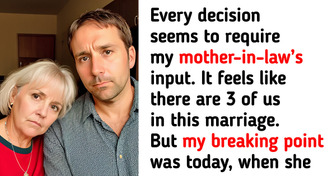
15 Powerful Photos That Moved Us Deeply
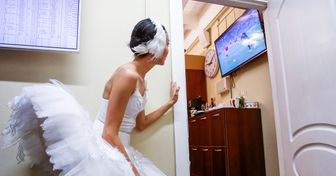
People Online Noticed Brad Pitt’s New Partner Is a Spitting Image of Angelina Jolie

Helen Hunt, 60, Stuns During Her Latest Appearance, and Her Lips Become the Center of Attention

Keanu Reeves Finally Cuts His Long Hair, and His New Look Causes a Stir

Anne Hathaway Deemed Unrecognizable After Her Face Shocked Many in New Pics

10+ Unusual Family Secrets That Made People Question Everything

10 Parenting Mistakes We Should Avoid

15+ Comics That Show How Modern Life Is Different From How Our Parents Lived
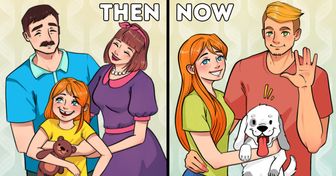
20 Hollywood beauties who used to look much more ordinary

